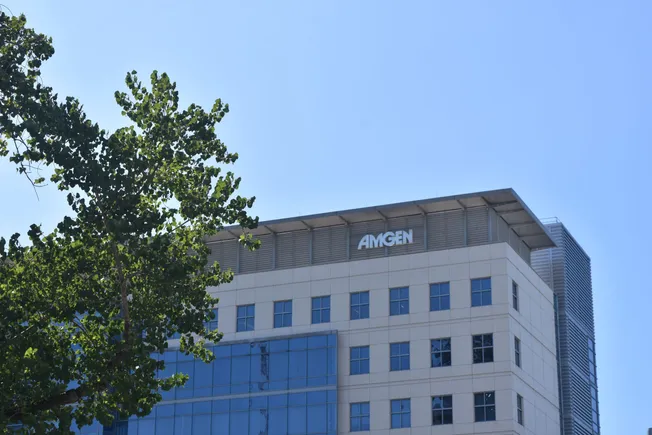After ‘sobering’ FDA panel, psychedelics supporters wonder what’s next


Long dismissed by top scientists and drug regulators, the use of psychedelics to treat mental health conditions has finally gained momentum over the last several years. But some proponents believe that progress was undercut this week, when one of the field’s most advanced therapies hit a significant setback.
On Tuesday, the Food and Drug Administration convened a group of outside advisers to assess whether a company named Lykos Therapeutics had gathered enough evidence to show MDMA — better known to some as the party drug ecstasy — is an effective therapy aid for people with post-traumatic stress disorder.
A positive opinion from the expert panel could have primed MDMA to become part of the first psychedelic-assisted therapy ever approved, a major milestone for this area of research.
Instead, panelists voted almost unanimously against the drug. They expressed deep concern about the safety of MDMA and the ways Lykos conducted its clinical trials. Lykos’ program has also been marred by allegations of ethics violations, including sexual misconduct and data suppression.
Approval now looks far less likely. While the FDA isn’t required to follow its advisers’ recommendations, it typically does. The agency should give a verdict by Aug. 11.
“The quality of the study, rather than absolute concerns that MDMA doesn’t work, led to this vote,” said Husseini Manji, co-chair of the U.K. government’s Mental Health Mission and former head of neuroscience at Johnson & Johnson’s Janssen unit.
Supporters of psychedelics recognize Lykos’ application had shortcomings. Still, some are disappointed with Tuesday’s outcome. They feel as though the advisory committee identified problems without offering possible solutions, thereby creating a murky path forward for testing other psychedelic drugs.
“You have some pretty smart people around that table,” said Rachel Yehuda, director of The Center for Psychedelic Therapy Research at Mount Sinai’s Icahn School of Medicine. “I would have used them as a real advisory board. Advise me.”
For the expert panel, a main sticking point was the reliability of Lykos’ data.
The company’s application hinged on two studies that, together, evaluated around 200 people with moderate to severe PTSD. All participants received talk therapy, and about half were given MDMA. Results found that over the course of 18 weeks and three treatment sessions, patients in the drug arms had a roughly 10-point greater reduction on an 80-point scale that measures the severity of PTSD symptoms.
Psychiatry drugs rarely succeed in larger trials. As such, FDA advisers, along with the agency’s own staff, acknowledged Lykos’ data do seem to show that MDMA benefits at least some PTSD patients. However, the two groups weren’t sure how much talk therapy contributed to the findings.
They also feared that “functional unblinding” — when study participants deduce what therapy they’ve been given — swayed the results to be more positive than they actually were. Unlike most experimental drugs, MDMA elicits effects like sensory changes and altered cognition that are unmistakable. Lykos’ trials demonstrated this, as the vast majority of patients worked out the treatment arm to which they had been assigned.
Several panelists highlighted this issue in making their votes Tuesday. Rajesh Narendran, chair of the advisory committee and a psychiatrist at the University of Pittsburgh Medical Center, said the results are largely “meaningless” without somehow accounting for participants’ expectation bias.
That bias has been a longstanding issue in this area of drug development — one the FDA last year flagged as a core problem. Some experts were therefore frustrated the advisory committee didn’t provide more concrete steps to address it, especially since more companies are now investing in psychedelics and planning trials.
“I thought the committee was close to incompetent,” said Jerry Rosenbaum, a former psychiatrist-in-chief at Massachusetts General Hospital who spoke on behalf of Lykos during the meeting.
“The FDA … asked for guidance, and they offered no guidance whatsoever,” said Rosenbaum, who also directs Mass General’s Center for Anxiety and Traumatic Stress Disorders.
Workarounds have been tried. Lykos, for instance, used blinded “raters” to assess study subjects by video in an effort to minimize bias.
The company also incorporated low-dose MDMA in its earlier studies to serve as an “active control.” But patients had trouble tolerating that dose and reported increased anxiety, so Lykos scrapped it for the larger trials.
Kendal Maxwell, a clinical neuropsychologist at Cedars-Sinai Medical Center, said microdosing could still prove useful in evaluating psychedelics, as could other active controls like cannabis that share some similar effects.
“Unfortunately, [unblinding] is going to be a problem no matter how long we do this. So we have to figure out how we’re going to move forward with that being a weakness,” Maxwell said. Otherwise, “we’re just going to continue to be stuck here, not being able to utilize this medicine.”
The closest parallel to Lykos’ drug is Spravato, a form of ketamine used to treat certain kinds of depression. Spravato’s journey could, then, serve as a potential blueprint for MDMA and other psychedelics, according to Manji, who helped discover and develop it while at Janssen.
Spravato was evaluated on its own rather than as an add-on to psychotherapy, creating a simpler case for the FDA to review. Additionally, J&J made sure to collect and submit data to head off questions about the drug’s effectiveness. For example, ketamine can trigger dissociation, so researchers ran tests to show that even if that effect tipped off patients to their assigned treatment group, it didn’t affect the overall results.
The foresight proved valuable. When the FDA convened an advisory committee on Spravato, panelists voted 14-2 in favor of the drug. The agency granted approval in March 2019.
Five years later, Spravato is on pace to reach $900 million in annual revenue.
“It’s unfortunate [Lykos’ application] was the first test case that went to the FDA, because it’s arguably the most challenging one,” Manji said. “Usually, you try to have one unknown variable. Here, you had a therapy that no one knew if it really worked and a drug that no one knew if it really worked.”
Beyond the unblinding concerns, FDA advisers criticized Lykos’ application for not having adequate information on the risks associated with MDMA, such as its potential to be abused and stress the heart or liver.
They also questioned the practicality of administering a drug like MDMA, which leaves patients in a vulnerable state. A risk mitigation strategy proposed by FDA staff would require at least two healthcare providers, including one who is licensed, to be on site to monitor patients for at least eight hours.
“I think because so many issues were discussed, it added up to a no, when each and every item might have been solvable,” Yehuda said. “But that wasn’t the way the committee was asked to work. They were asked to have a discussion towards the aim of a final, binary response.”
Yehuda also serves as director of mental health at the James J. Peters Veterans Affairs Medical Center in New York City, and says she’s seen veterans “really improve when this treatment is administered properly.” She believes a drug like MDMA may be more implementable in environments like VA facilities since they’re tightly controlled.
Doctors, researchers and industry followers don’t yet know to what extent the advisory committee’s vote will affect sentiment around psychedelics.
Some don’t expect the ripple effects to be large or wide-reaching. Analysts at the investment firm Leerink Partners argue most of the issues raised were specific to MDMA-assisted therapy, and they still see the FDA as “supportive of psychedelic development.”
“I don’t think it has an overarching, damning effect,” said Manji. “It has somewhat of a sobering effect on the field, where there was maybe a lot of hype. That’s not a bad thing from my standpoint.”
Others may disagree. Andrew Tsai, an analyst at Jefferies, wrote in a note to clients that while there are “differences between Lykos’ trial and other psychedelic programs … we may see some increased uncertainty around the approvability of psychedelics.”
Investors already seem unnerved. Since Tuesday, shares of the publicly traded psychedelics developers Cybin, Mind Medicine and Compass Pathways have dropped between 9% and 18%.
This post has been syndicated from a third-party source. View the original article here.




